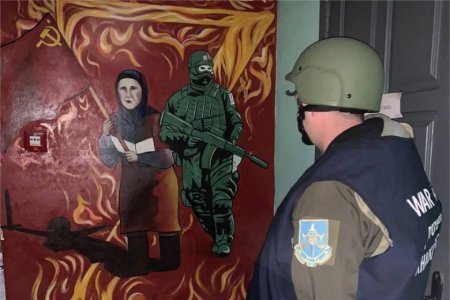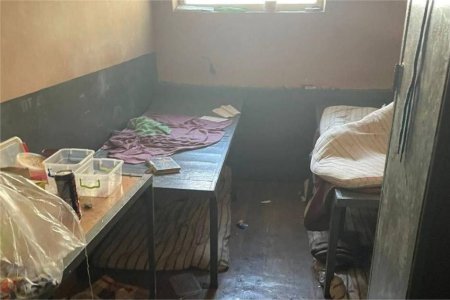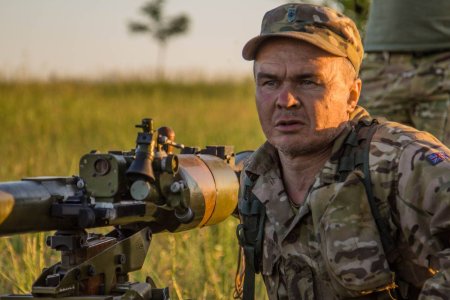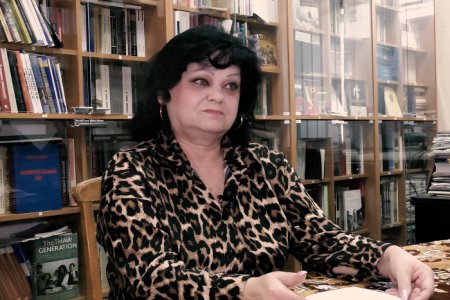Viktoriia Ivlieva’s exhibition about Bakhmut recently opened in Germany. It is not her first work photographed in Ukraine. The Kharkiv Human Rights Protection Group met with Viktoriia in Kyiv, where she has lived for over a year. As before, she is uncompromising in supporting Ukraine and criticizing her own country. “Humanism” is probably the best word to describe Viktoriia Ivlieva. It is for the manifestations of humanity, among other things, that she received worldwide recognition.
In this interview:
• What prevents Russians in opposition from talking about Ukraine?
• Why don’t Russian soldiers repent even after being taken prisoners?
• “Russians are a xenophobic nation”
• Journalism and human rights
• Does a journalist need cynicism?
• “I have no right ever to criticize Ukraine for anything”
You came to Ukraine over a year ago, in March 2022. You have been asked a lot about this, and you answered that you do what you feel you should do. But why is there such a big contrast? I don’t know how you feel about Kseniia Sobchak...
I am disgusted.
There is a big difference if we compare Kseniia’s sayings and yours.
Kseniia Sobchak, unlike me, is an important person — everyone knows her. A limited number of people know me, thank God, so I can safely walk the streets. This is the first. Secondly, for me, she embodies all the vulgarity of Russian life, with its lies, vileness, gossip, and mingling. This is the woman I least want to talk about.
Kseniia Sobchak is a symbol. I am talking about the fact that there are people who, it seems, are considered to be “another Russia”, but at the same time, you are unusual even among them. Why?
Probably because I’m different, I always did what I wanted.
It is still hard for your compatriots, considered liberal, to talk about Ukraine the way you do. Not because of the threat of criminal prosecution but because some national pride interferes.
In addition to national pride, I think they are hindered by the fact that they are not here. We are all here inside the war. I don’t know if you ever traveled outside Ukraine during the war. I went out twice. It’s a completely different feeling. As soon as you leave, you realize the sky above you is peaceful. The true serene sky and nothing threatens you. And when you enter Ukraine, you immediately seem anxious; it is inside each of us. We live in this anxiety. I say “we” not because I am Ukrainian but because I have lived here for a year and a half while many people left. I think that’s the main thing. I am not defending anyone, and I understand there is a mixture of imperialism, self-pity, and other stuff in them [Russians]. People who do not live inside horror do not know how a shell can fly at any minute, and every minute lives — ours, people close to us and not close to us — can end. I saw it; we all saw it. And the sounds of the siren, to which the people of Kyiv almost do not react, remind us of this all the time.
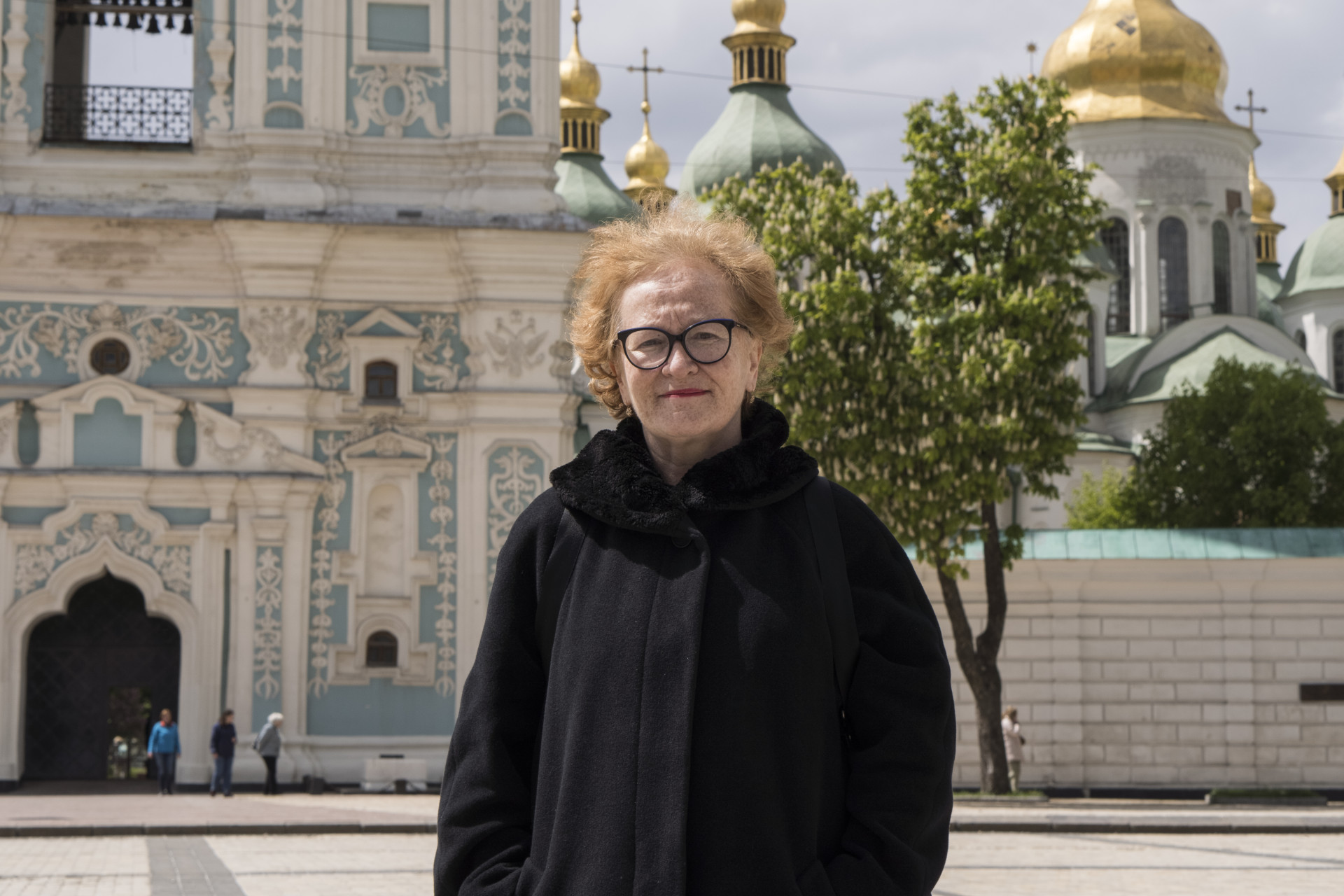
I regularly go for walks with my dog. Sometimes we go out late, at half past twelve, just before curfew. When you walk alone with a dog down the street, and an alarm is heard, it does not lead to horror, but some kind of very, very great anxiety, which then turns into hatred. There is a wonderful Ukrainian word that is not in the Russian language — “fury”. In Russian, there is an adjective “fierce” but no noun. The mixture of this fury and anxiety, I think, separates us from people who do not live here. At the same time, it is difficult for me to talk about foreigners from other countries because they are not from the aggressor state and are not Ukrainians, so their attitudes will still differ. None of them can take it so personally. A huge number of people help Ukraine and stand with Ukraine, but at some deep level, it’s still different.
At the same time, you interacted with Russian prisoners of war in the camps. And these people are far from the heroes in the books by Remarque. Even after everything that happened to them, they say, “I didn’t see Nazism here and Banderites [Ukrainian Nationalists], but I don’t know what others saw.”
Well, yes, it is very difficult to remove the veil from your eyes. Because then you have to accept your guilt. And this is the most difficult thing — to admit one is guilty. This is the first. Secondly, I should tell you that one of these people I spoke to asked me to call his wife. I called, expecting the worst because he had not been exchanged for a long time. He asked me to tell her to apply to the military registration and enlistment office or somewhere else to move his case somehow forward. I called her, and we talked for an hour and a half. She turned out to be an unsophisticated, absolutely reasonable woman who begged him not to go to war: she begged at his feet. He said, “No, I promised. My friend said... Men’s business... Don’t mess around.” And he went.
“They all think they won’t kill”
She told me about their life. This is a small village in one of the small republics on the Volga [river]. She told me how people first resisted, did not want to go to the military registration and enlistment offices, or did not take the summons. And then, when there was a second draft, there was no longer the strength to resist because no one supported them, and they were too weak. And I understand that they are indeed too weak. Because the moment to build civil society has long been lost in Russia. She told me: “Why do we live in Russia at all? Are we needed here?” I felt so sorry for her. I even thought about writing about it in the interview at the end. Then I realized this was a separate story, unrelated to the interview, but I maintained some kind of relationship with her. Sometimes I write a few lines and ask if he returned. And just the other day she wrote to me: “He has returned, he is at home.”
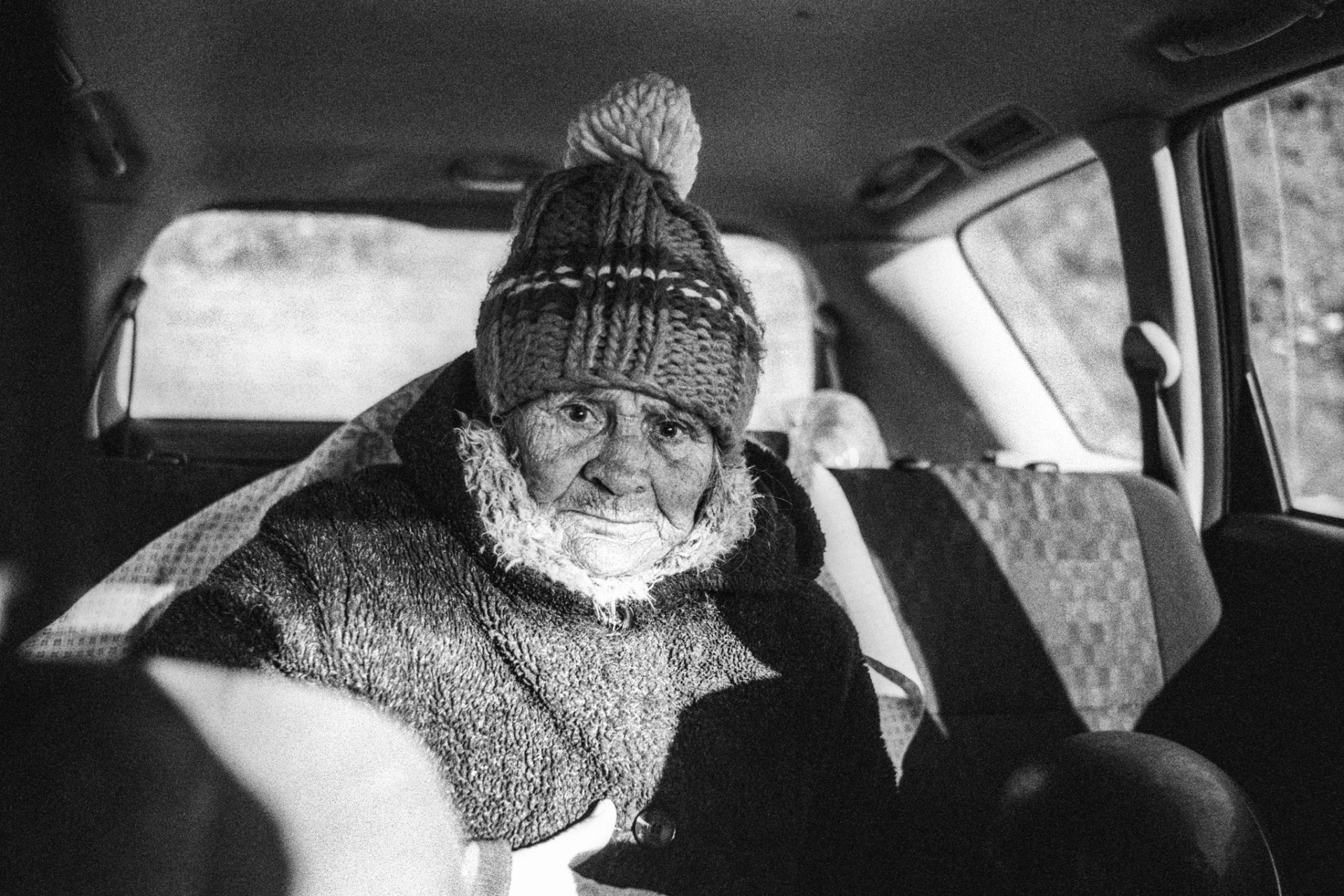
I asked how he felt, and she said, “He is very ill; he drinks all day. He does not communicate with anyone and stays at home.” In general, everything is awful. I asked her if he had drunk before. She said it used to be within reason. This is the story of a little man who went to war believing he would not kill anyone. They all think they won’t kill. That’s what struck me about all of them, except for one, a professional contract soldier. He fought for ten years in Syria and different countries. The rest signed a contract, but they are not military at all. They all go not to kill but to earn money; they think they will repair a car and fix the wheels on an armored personnel carrier. What else can you do there — change oil?
Protect Ukraine from Nazism?
You know, among those with whom I spoke, I did not meet such fervent ones. Most of all, of course, I was struck by the answer to the question at the end of an interview with them, when I asked: “Did you learn something positive? Well, for example, you can’t fight, you can’t take weapons in your hands at all. In the 21st century, it is necessary to solve problems differently because, after all, we are so far away from the Stone Age that it is simply improper to apply the methods of the Stone Age. One answer was: “Yes, we have been abroad.”
I thought: “What kind of fool are you, the blockhead? What kind of cynicism is this? Was it positive that you have been abroad?! Through these murders, through blood, through what you went through ... ” They all had far from a fun experience, I understand that. I have no sympathy, but I realize they had it rough. He was not a political instructor with a pistol. Do you know the photo taken in 1939? There was a political instructor with a gun in his hands. It was a very famous Soviet photograph, a good one, but it was taken during military exercises. Of course, it was not in real life: smooth political officers with pistols. There was blood, vomit, dirt, pus, smell, corpses, flies, and everything else.
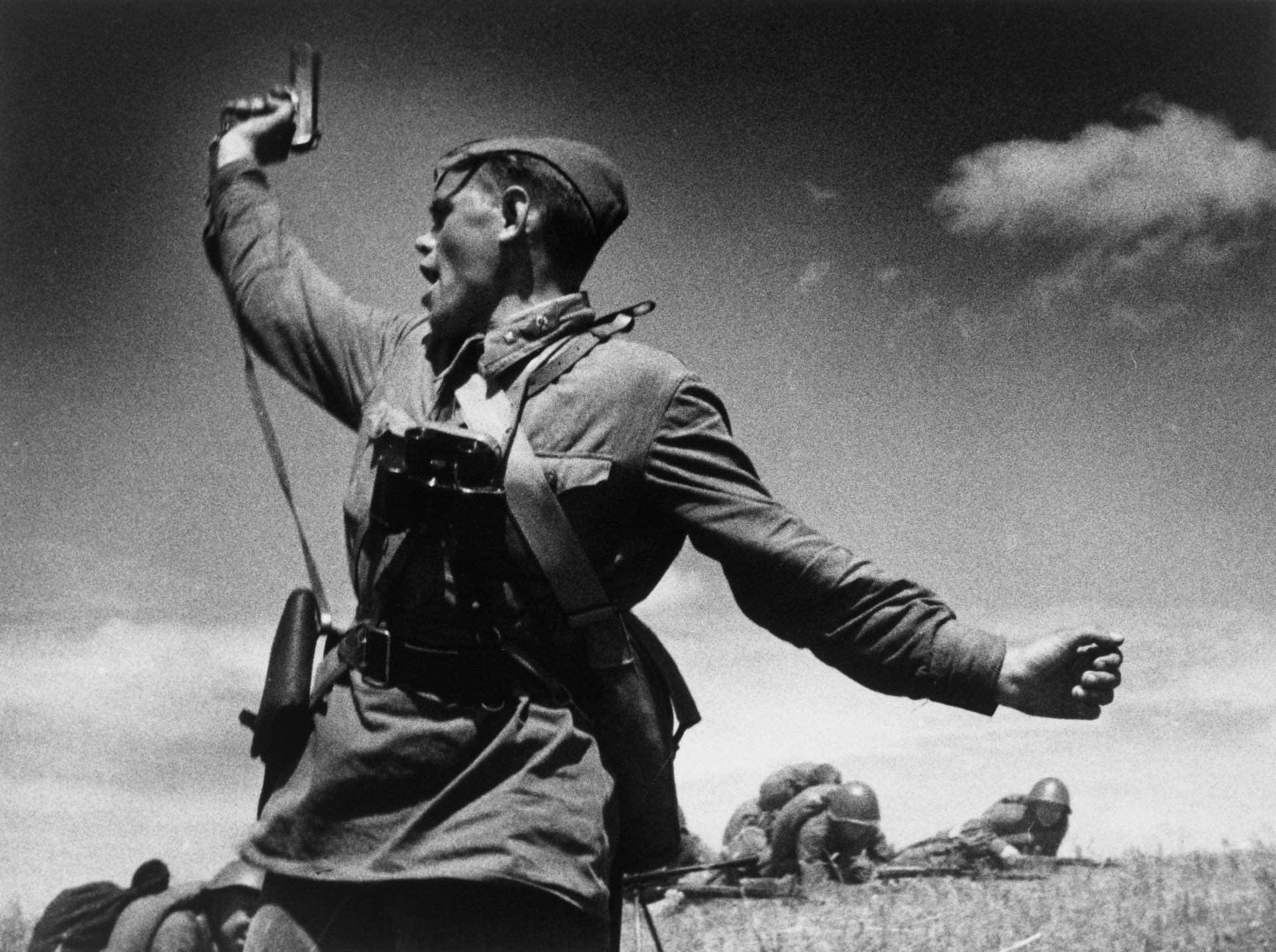
It struck me. Okay, I can understand the lack of self-criticism. Not all people are capable of it. But a complete lack of empathy for the people you see around you and not understanding that crossing someone else’s border is unacceptable. For them, it’s like this [snap of fingers]. “Ah, yes, we are already in Ukraine.” But how did you end up in Ukraine? It’s a different country. How could you violate the border? For example, you find yourself in Finland. However, Finland is different. It is clear that it is impossible to cross into Finland. Although, the border is exactly the same as with Ukraine. Well, in short — with Ukraine, you can. That is, some kind of subconscious secret, at the level — I don’t know what — of the liver, heart, heels. The feeling that it’s still something you own. A complete misunderstanding that this has long been not yours. And most importantly, you think it is yours, but the people who live there think it is not yours. So you need to listen to the people who live there, not to yourself, and stop proving to everyone that this is yours.
“These are ordinary people who were taken advantage of by the state”
This made me very sad. At the same time, these were not hardened killers. There was no feeling that they: “I’ll tear your maw and gouge your blinkers out!” as it was said in one funny film. These were ordinary people with whom you probably would not have crossed paths in other circumstances. Such people are, perhaps, the majority in society. We think that these people are not so interesting. They are around us; they work and serve us; they live their lives, and we do not notice them. However, they were very successfully detected by the state, which realized it could use them because it is easy to manipulate such lumpen. And we know from the example of 2014 that it is very easy to incite lumpen, and then it is tough to calm them down because people stop obeying.
In this situation, the Russian intelligentsia, including me, is very much to blame. Because if the state could manage these people, then the intelligentsia could influence them too, pulling them to Good — not Evil, indifference, and vodka, but to Good. Alas, it didn’t happen.
I have to say, when I talk to people here in Ukraine, we often talk about essential things: we suddenly start talking about some moral foundations, ethics, behavior, about the meaning of life. These conversations arise with ordinary people. In Russia, such discussions can only be conducted with very close people, and not just like that. The entire moral side of the human personality is hidden somewhere, and I see that people are corrupt to the core.
“In Russia, conversations about the meaning of life and morality can only be conducted with very close people”
And I think that my main accusation against the president of my country is not even starting the war with Ukraine. Because the war in Ukraine resulted from what he did for many years, this man managed to corrupt almost 140 million. We don’t take small children, although they are also successfully corrupted in kindergarten. The other day, before the 9 May, I saw a procession of children from kindergarten dressed in military uniforms, and the teachers were dressed in military uniforms. In addition, this uniform was of different military branches — that is, how much money was spent on tailoring it. The children were marching. Children are not to blame for anything, but steering children in the wrong direction begins from early childhood.
I understand that if, as I hope, they are tried, the word “corruption” may not be heard in a court of law: they will be judged, according to some articles, as war criminals are tried. However, I think it’s important to talk about it. I think what happened in the Third Reich was also the corruption of the German people, which, fortunately, lasted much less than the corruption of the Russian people.
But doesn’t what Putin did have historical overtones? This hatred towards Ukrainians.
In general, Russians, I think, are a xenophobic, jealous nation. So I have been many times in the Caucasus, and there you notice that people are not very envious of each other. You see that the neighbor has a new roof. Oh great! And I need one. You see that the neighbor bought something else. Oh, I want to buy this, but I’ll earn extra money, yes. And it’s not like the neighbor has a new roof, but I’ll shoot into his roof so that it doesn’t exist. You understand the difference, right? It’s hard for me to talk about the whole nation; it’s impossible when there are 140 million. It is clear there are many different people. But, unfortunately, to my deepest regret, I see the general trend. The fact that this is a xenophobic country is understandable. The fact that the friendship between nations was a show is also understandable. This was very well said by Mandelstam in some prose: “The peoples of the USSR [Soviet Union] are friends until the school break.” And as soon as the break comes, the skirmish begins — this is the proximate meaning.
You’ve seen a lot, and you’ve been around. Is it possible that after all you have seen, what is happening now in Ukraine continues to surprise you? What could be more terrible than the Interahamwe detachments, armed with machetes, scouring the houses?
You know, if we talk about Rwanda, I didn’t see that.
You have seen the consequences.
Yes, I have seen the consequences. The main murders were in April, and I was there in late July — early August. It already began to calm down, and international troops were brought in. But, you know, I will say this: it is impossible to love all of humanity. I can’t. I think people who say they love everyone, in reality, don’t love anyone. Because it is obvious your children will always be closer to you than some distant people. Therefore, unfortunately, what is happening here in Ukraine does not surprise me. I crave to be surprised, but this [closeness] leads me to terrible anguish and, of course, terrible pain. It’s very close. Here are people who grew up in the same paradigm of culture. Despite my strong desire, I would not have been able to comprehend everything in Africa. I see that this is a beautiful country. Probably, I would like Russia to be like that. But I understand this is impossible because it has a different history.
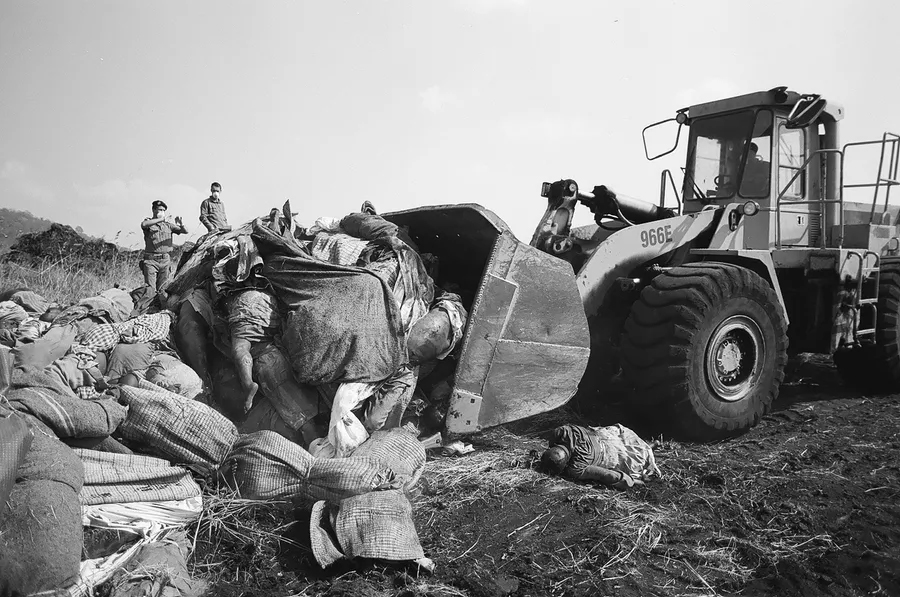
Ukraine’s great happiness is that there are no imperial aspirations in it. And this is Russia’s greatest misfortune — imperialism. All that once was the glory of Russia — territories, the annexation of some lands, colonies. They were not called colonies back then because we are used to all countries having colonies far away where you must sail on a ship for so many months. And here [in Russia], everything was nearby. But, in general, they were colonies. And in the past, it seemed that it was power — this endless land, these 17 million square kilometers. And all this has now turned into some kind of chains that hang on the country, and you cannot get rid of them. Why do you need these territories if the people on them are unhappy? If people live poorly there and are not free, why do you need these millions of square kilometers? For what? To do what? To say that you are the tsar of the entire earth? Well, you said it, and what’s next? Nothing. Then you will die anyway, and you will be buried somewhere. The end will be the same, but the memory you leave about yourself will be terrifying.
“Imperialism is the greatest misfortune of Russia”
After Rwanda, you gave up journalism for ten years. How do you feel about this profession now?
You know I still like this profession. If I disliked it, I would not have returned to it. I went back to it, partly because I couldn’t do anything else. I think I am far from number one in journalism. I understand that in Rwanda, it was not journalism that was to blame, but individual representatives of the profession who simply behaved ugly there. It was visible. Firstly, because you are white, it is clear that you came from somewhere and did not endure all this. But I have already said this: I think eating Snickers in front of hungry people is foul. I do not mean that you should sit next to them and die. But you must feel the moral limit.
Was it right in front of people?
Yes. Well, as if they were not people but objects. If a bedraggled woman with a child sits there, let her sit, but I want to eat. Why should I starve? I need to do an editorial assignment; I will do everything badly if I do not eat. I don’t know what was in their heads. I just watched it from afar.
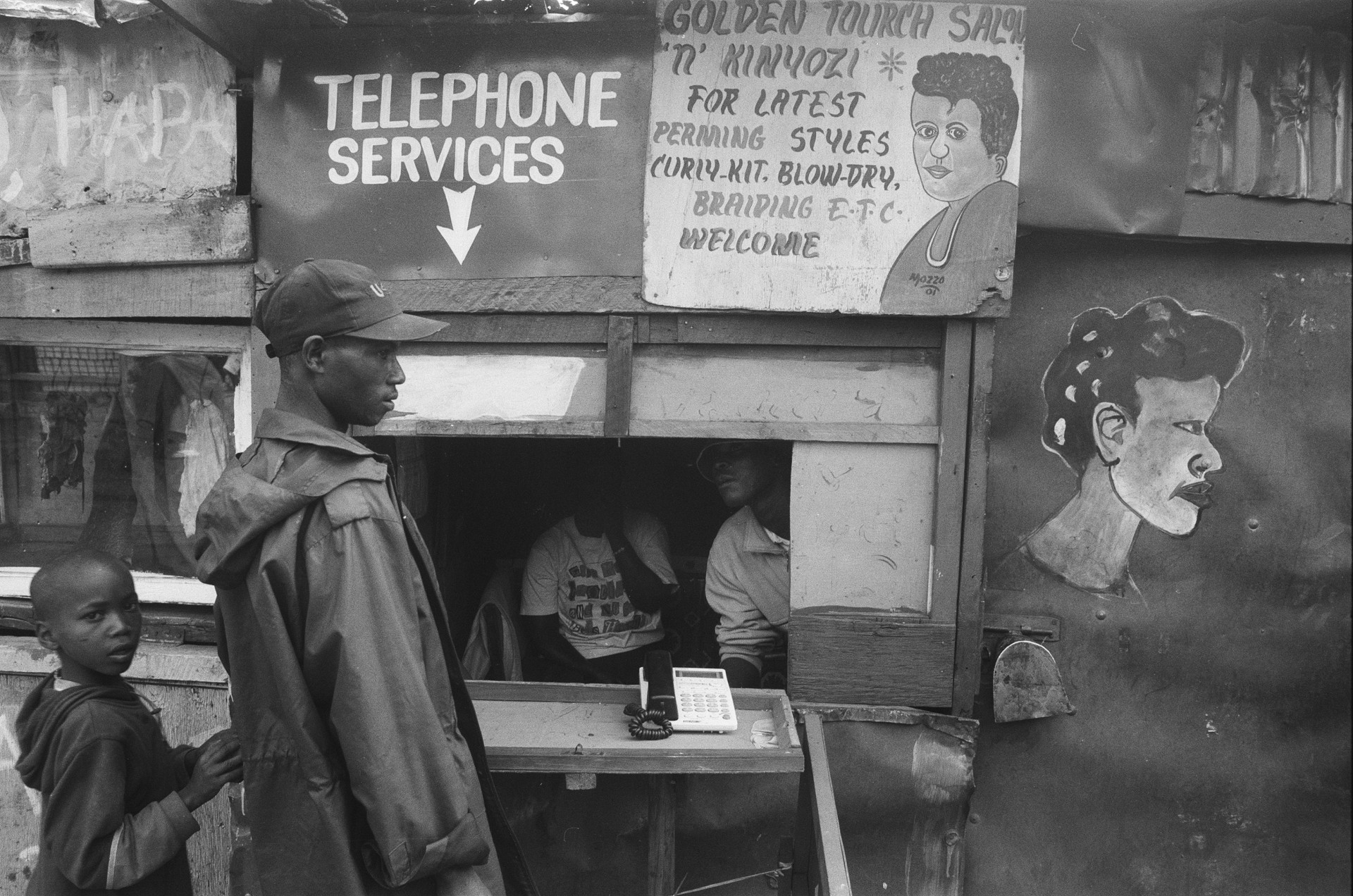
I had another case related to journalism, for which I am terribly ashamed. It was on the border with Hungary and Serbia when refugees from Syria, Afghanistan, and Iraq were arriving. I don’t remember exactly what year, 2017-2018. I was at this border, and the Hungarians said they would close it at midnight, and whoever was late was out of luck. And it didn’t matter to them where you came from and how you suffered there. Everybody — get out of here. There was a railway along which people walked, mostly women with children. There was a crowd of journalists, and in front of our eyes, the Hungarian police began to stretch barbed wire, through which it was no longer possible to pass. And at that moment, I thought that, of course, it would be right to tear this wire, tell them they are scum, and they cannot do it because people are exhausted, and it doesn’t matter what country they are from, and it doesn’t matter if even there is one terrorist among them. Although, as we can see, there were not many terrorist attacks after this “great migration of peoples” to Europe, no matter how Russian propaganda cultivated it in every possible way.
And I realized one thing I am still ashamed of: colleagues from different great countries standing around me would look at me like an idiot, some fool who attacks the policemen. And it stopped me. And I’m still ashamed of it. I understand that I would not have won anything: of course, they would have boarded up this road, stretched this wire. But that bad feeling is still there.
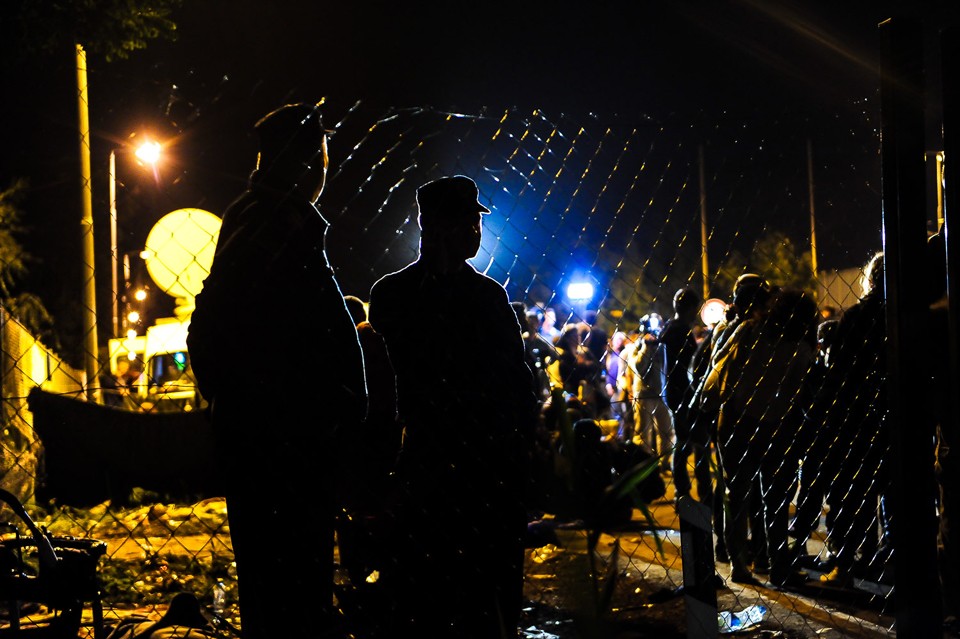
We went to the Serbian side in the late afternoon, and I was there untangling this wire so that people could climb through. There was a police station nearby. When I went there and said that I was Russian, they told me: “Oh, we won’t let anyone in, but you, please, do what you want here, relax, because we are brothers.”
The Serbs said it?
Yes, the Serbs told me. Of course, I told them I was an anti-brother, but I sat on the territory of this police station, and they gave me water to drink. In the end, we unraveled this wire, and after 11 pm, I started taking women with children and moving them forward from the end of the line. A very famous colleague of mine approached me and said: “What the hell are you doing? Who are you?” And I realized he would have never understood me because people are important to me more than anything else. I realized that I am a person first and then the rest.
For some reason, people often think journalists are always journalists and never people. But this is not so. Most journalists are people first, but sometimes there is such a desire to be a perfect professional. But I think that if, instead of doing your job, you are saving someone, then this is more important. Strictly speaking, what is journalism for if a person dies there? For nothing. Especially now when many journalists report on “fashionable” events. The war in Ukraine is now a fashionable event. The genocide in Rwanda and the resettlement of people were also trendy. It attracted thousands of journalists, who, I think, were not essential there.

Does a journalist need cynicism?
Cynicism is not needed at all.
Does anybody need it?
Nobody. Cynicism is disgusting. You just need to have the composure to do some of your work. This is true. But this is not cynicism. Well, I don’t cry, either. For all the time in Ukraine, I shed tears, maybe twice. But that doesn’t mean I’m not worried. If I cry all the time, and there are tears between me and my camera, I won’t see anything and won’t be able to do anything.
The direct parallel is the doctor, who also does their job. But that doesn’t mean they are cynics, does it? It does not mean they will not come up to the patient the next morning and ask: “How do you feel after the operation I performed on you?” It means they care. However, if you worry and your hands shake, you will cut off something else instead of appendicitis.
Once, I heard the phrase: “Journalism in Russia can only be based on human rights.” What does it mean — “human rights journalism”?
In fact, any journalism that tells about a person should always protect human rights. How can journalism be different? So you use your abilities — your pen, your eye — to lie? To become a propagandist and lie? How can journalists not protect human rights and laws? Then they are sold to someone, and this profession is called “prostitution” or something else. But not journalism. You see, I live in some stupid ideal world of my own, very far from the world of Ksenia Sobchak, which you mentioned.
“Journalism should be based on human rights approach”
I will tell you about an incident that happened to me recently. I was in Sloviansk; I went there on purpose the next day after the rocket hit the house. There was a very heavy shelling of Sloviansk. It was 14 April, Good Friday. I am not a believer; I am an agnostic. Nevertheless, I had to mention that it was on Good Friday. A two-year-old boy and his father died there. The boy still lived for some time; he was found and saved by his dad’s friends, who rushed to this roof. The apartment was on the fifth floor. He lived after he was rescued for about 15 minutes. He died in an ambulance with his mother next to him. I was so dazed by these people who climbed onto the roof without climbing protection, masks, gloves, or anything. It was impossible to breathe there from the plaster and dust that rose due to the rocket’s fall. They told me the child was covered with plaster crumbs and had them in his nose and mouth.
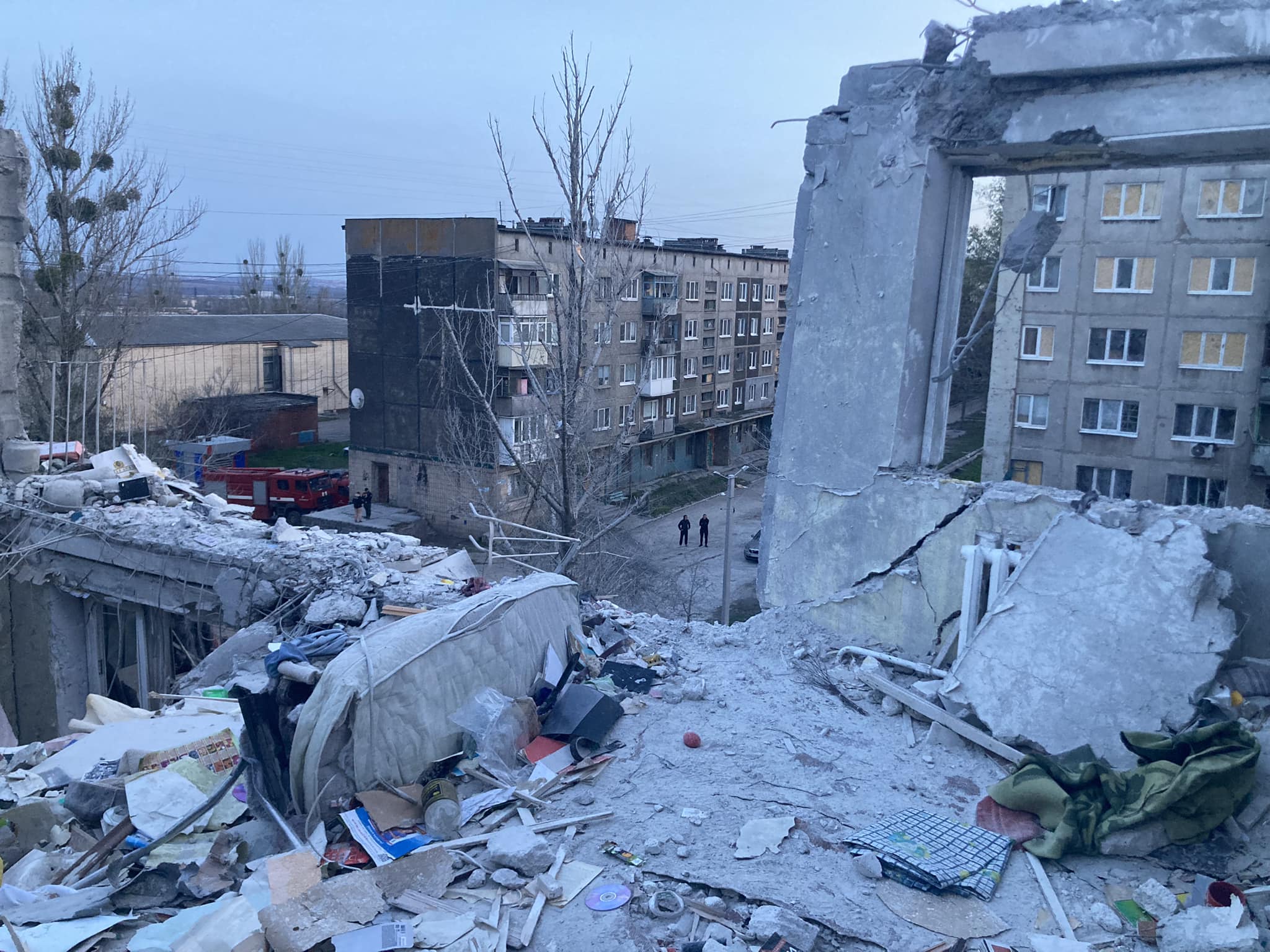
It so happened that I called the widow of this guy [the boy’s dad], Nastia, and we started talking. She said, “For some reason, I just decided to talk to you.” I don’t know how it happened. She knew nothing about me, but I knew she was an unhappy young woman. The next day was the funeral. I wrote a lengthy post that got a huge number of likes. But it’s not about that. There [in the post] was her bank card. They helped her: I was not the only one who helped her, but my post helped her raise some money. I understand this will not return her family, but having some material support is good. I think it’s important when you’ve lost everything because there was simply no apartment, no floor, the sky instead of an apartment.
I was the only journalist who went into the church during the funeral. I had my camera, and Nastiia was in a completely terrible state. And you, on the one hand, sympathize, and tears flow from you; on the other hand, a part of you remains journalistic, photographic. You look and think: “Damn, what a face! God, what a picture I can make. God, God!” And the hand reaches for the camera. Then again and again.
I saw a woman standing beside me and watching what I was doing. Then, all of a sudden, the priest who led this memorial service mentioned my post, which brought me into a state of shame. He said that this was an example of how we should help brother to brother and all that. And he asked: “Is the servant of God Viktoriia here?” I had to say I was here, which was terribly embarrassing. However, there was an internal struggle within me. Should I take off? But I can photograph this. What will they do to me? Will they kill me? No, they won’t. I can film quickly and run away or put the camera in my bag and apologize. And at some point, I said to myself: “Ivleva, who are you? Are you human first?” I responded: “Of course, I am a human first.” And that’s all. The professional zeal has gone somewhere, and I didn’t shoot anything there. I absolutely don’t regret it — not one second. However, it was possible to make superb photographs. But I’m happy I didn’t, as it was not the right situation.
Her husband lay in a closed coffin and was not even shown to her [the widow]. And the boy was in an open coffin, but he was covered with a veil. Anyone who wanted to could move this coverlet and kiss him. I opened the bedspread, and there was a strip of paper on his forehead — a wreath. I saw two stitched scars on his head and bent down. The lower part of the face was also covered, and I thought it might be for the best. I bent down to kiss him and realized that the dead boy had living hair on his head: the hair grow for a few more days. It was so impossible. This live hair is on the head of a dead little boy. And I realized that I could write about it. I am very glad I didn’t photograph anything there, but to write ... I have been getting ready to do it for a long time.
Two weeks have passed since I returned from Sloviansk. So far, I haven’t squeezed out a word because these are very complex topics. I have to write so she doesn’t feel so much pain because she survived and was left with nothing. Two days ago, she told me: “I don’t understand how I live without them; I don’t live, I just exist."
There is a well-known case of Berlin Wall guards who shot a man trying to escape East Germany. The court said that at that time, the concept of human rights was already known and that one cannot simply say: “I followed orders.” They were found guilty. Why is it still not generally acknowledged in Russia — human rights need to be understood and people held accountable for their violations?
I think people understand, but they are terrified. And fear is a poor adviser, not an adviser at all.
If you rely on fear, then you are doing everything against morality
The state deliberately confuses people about moral values with stories, for example, that blacks are being lynched in the United States as if blacks are still being lynched. There is constant propaganda: we take some historical event that happened years ago, after which a lot of water flowed under the bridge, and everything has changed, but we continue talking about that event as if it happened today. And the people of today believe that a man is hanging from a tree right now because he is a Negro hanged by the Ku Klux Klan. Although many years have passed since then, and the United States still repents. I took the United States because, for Russia, this is the main example of the horrors happening in the world.
Don’t Russian soldiers understand that they will still be held responsible?
Okudzhava has this song:
How easy it is to become a soldier, a soldier.
Hit the step on the curved streets.
How easy it is to be a soldier, a soldier!
How easy it is to be a soldier, a soldier! You are throwing off responsibility. You do not want to answer and say: “I am a pawn, I am nobody, I am an empty place. They said to lie down — I lie down, they said to stand — I stand, they said to shoot — I shoot. They said not to think — I do not think. They said not to feel, and I don’t feel.” And this is how you live your life. And the state benefits from having such people.
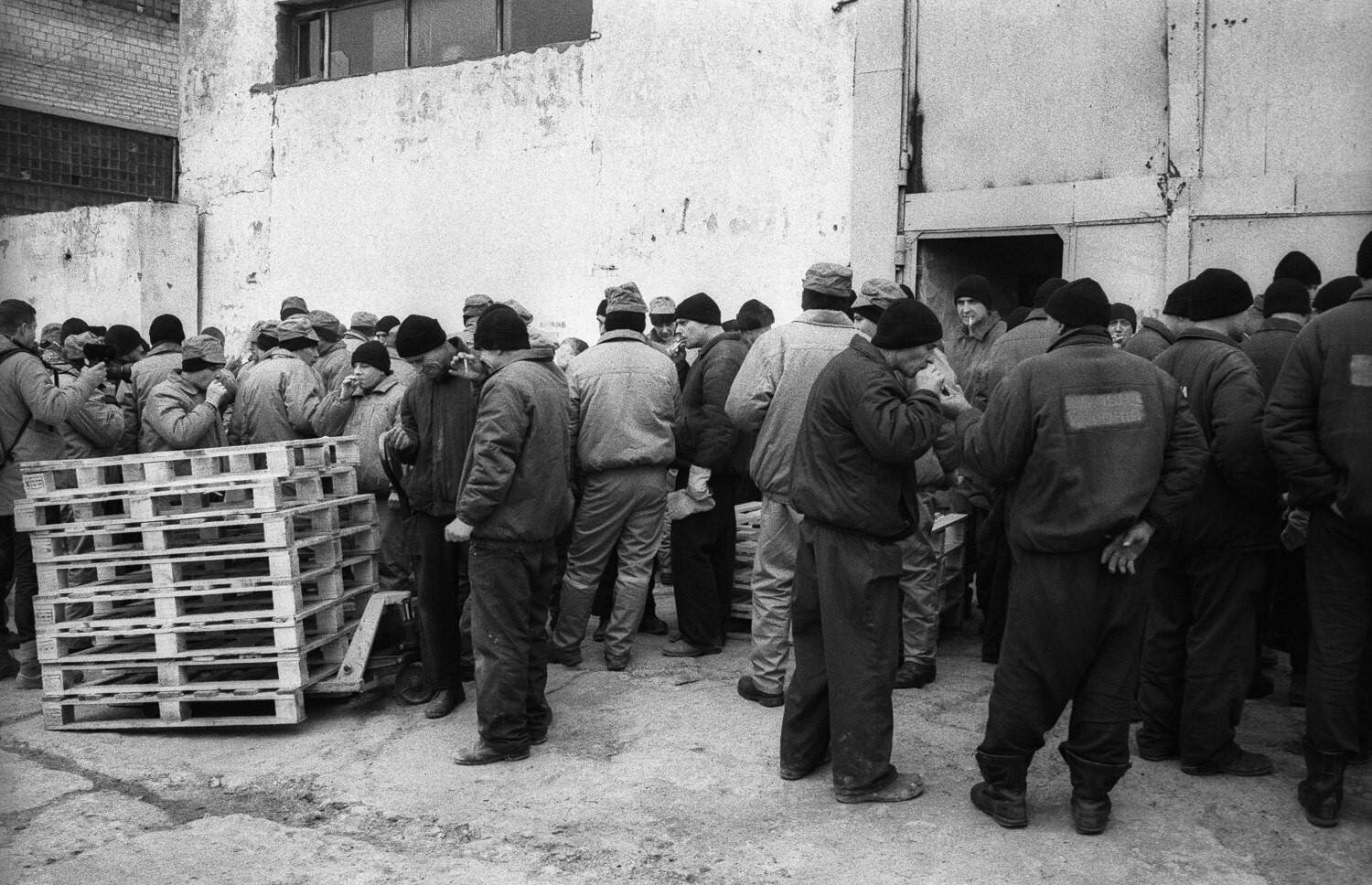
There was a book called “The Wizard of the Emerald City” with a sequel: “Urfene Juce and his wooden soldiers.” They are the wooden soldiers. I don’t even know if it’s possible to demand something else from them until some twig with green leaves sprouts on this wooden soldier, and it turns out that he is still not quite so wooden, but a living tree. Don’t think I am defending someone in Russia. I am not defending anyone; above all, I am not defending myself. I’m just trying to explain some things, and explaining is not the same as defending.
It is unlikely that you would be a good lawyer for Russia.
I would never defend Russia. I have no reason to defend her.
In one of your post-Maidan interviews, you said Ukraine urgently needs to decommunize. Now we are talking about de-Russification. Disputes about whether it is necessary to rename streets like Pushkinskaya or Leo Tolstoy do not subside. The Theater of Russian Drama in Kharkiv even said it no longer wants to be called the Theater of Russian Drama. Is this a continuation of the same process as in 2014, or is it something else, an excess?
You know, I have no right ever to criticize Ukraine for anything. I never interfere in the internal affairs of Ukraine. In my current status as a citizen of the Russian Federation, I have no such right. My conscience does not allow it.
Even if they are errors, they are absolutely normal growth errors. It is liberation from the empire. This is the removal of that imperial jacket from oneself completely. For example, I don’t remember many monuments to the French, Spaniards, or Italians, even the greatest, in London. There is no 38 Balzac Street in Great Britain or 45 Shakespeare Street in France. There’s no such thing, but somehow everyone lives with respect for each other. It does not mean that Shakespeare has become worse and Balzac has ceased to be read. It’s all about something else.
“If for the freedom of Ukraine, it is necessary to stop speaking Russian, then people will stop speaking Russian, and nothing terrible will happen”
Pushkin and all the others do not become better or worse from this. He stays where he is. He stands where he stood and will stand. Those who need it, I’m sure, will read it. Now, in general, the time when people began to read less, we all know this. If we talk about world culture in general, then this is some kind of technocratic Middle Ages, a cultural downfall from which, sooner or later, humanity will recover anyway, as it recovered from other failures. Unless the Russian Federation combs the planet with atomic bombs, which cannot be discounted.
If, for Ukraine to survive and remain a free country, it is necessary to stop speaking Russian here, then people will stop speaking Russian, and nothing terrible will happen. You never know which countries were colonized and spoke the colonizers’ language. Then they stopped.
If we take the fall of the colonial system in the world, probably, some countries began to live worse economically than they were under the colonizers. But this is their way, the way of freedom. They don’t owe anything to anyone, and they don’t depend on anyone. It got worse; that’s how it is. It is impossible to jump from the slave-owning system to democracy. So you need to find your way. But this is your path, and you walk it freely. I think that free is the main defining word. And Ukraine searches its way. And the farther she sails away from us [Russia], the better. I wrote about this many times and said: “Sail away, guys, from us, row with anything, even with ice cream sticks, just rake away.” I am delighted that Ukraine is doing this.
There are some things that I regret immensely. But I understand that this is how it should be. The other day I was in Irpin, and there was the opening of a mural about Bakhmut. And then I asked my friends to drive to Pushkinskaya Street, which, by the way, still exists there. In house number 47, based on what I found, Boris Pasternak lived in the dacha [summer cottage] in 1930. It was time for Pasternak’s boundless love affair with his second wife, and it was just beginning. He was in love and wrote a poem of wondrous beauty in Irpin — so iridescent, absolutely Pasternak, with such beautiful rhymes.
We arrived at this house and saw that the site had not been touched. And next to it was a large house, which was hit by a direct hit: only the front and back walls remained, but everything inside was burned down. And in front of this house grew an almond bush of wondrous beauty. And I realized that Pasternak’s poem, dedicated to Irpen and his love, sounds blasphemous today. This burnt house, I don’t know how many people died there. Perhaps they didn’t die — it is not the point.
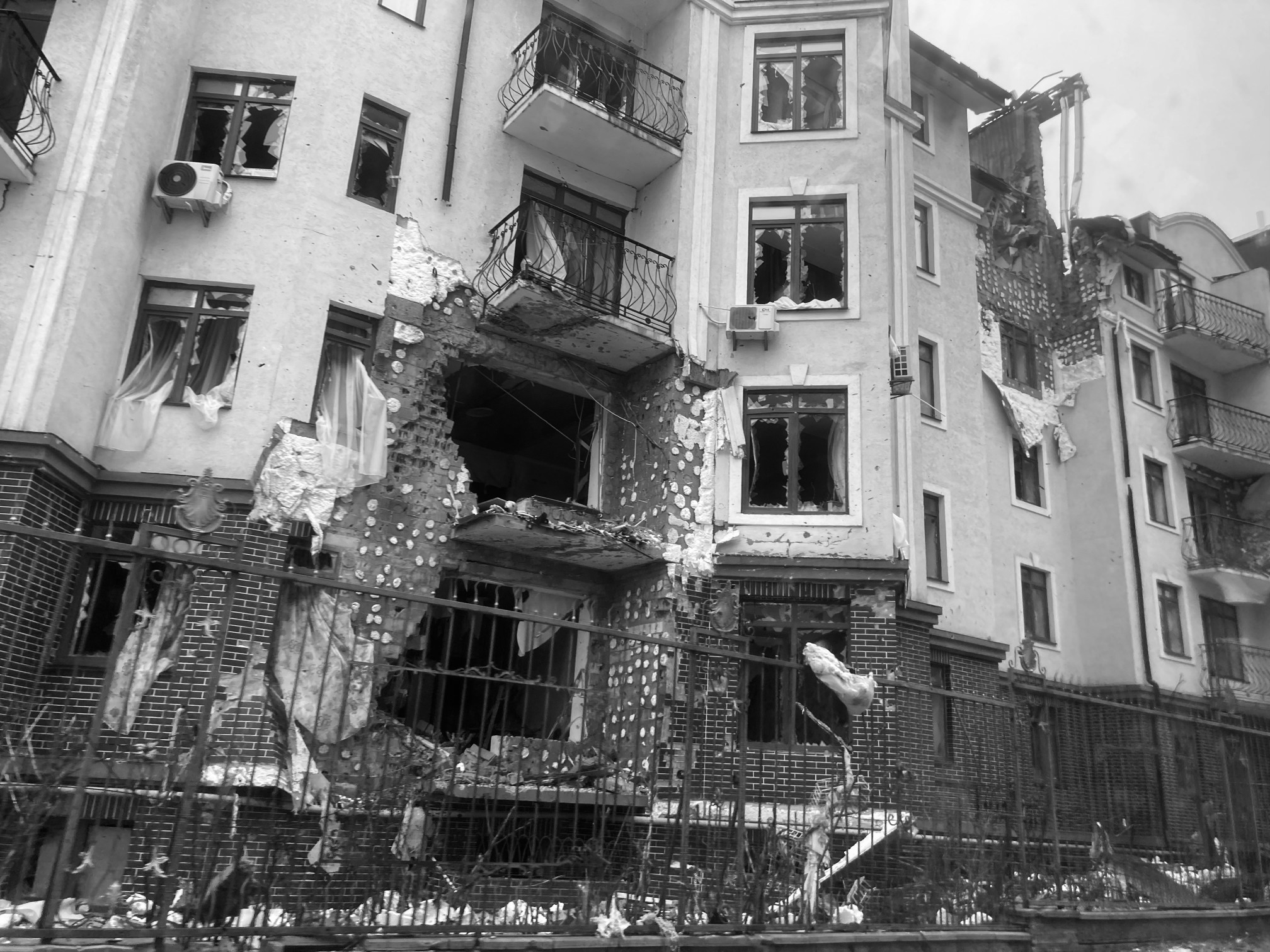
Moreover, I understand that if Boris Leonidovich [Pasternak] were there now, at this dacha, he would never have written this. It is impossible to write about love while in Irpen, engulfed in flames, misfortune, death, and blood. And I understand that another piece of Russian literature is burning down with this house. I can physically feel it go away. I will now read the beginning of this poem to you, and you will understand what I am talking about.
Irpen is a memory of people and summer,
About liberty, about escape from bondage,
About pines in the heat, about gray gilliflower
And the change of calm, rain, and darkness.
Do you understand? It all sounds terrible now. And I know that Pasternak and his poetry have nothing to do with it. But it has everything to do with Russia and its war, and it is tough to read this poem now.
You have been in the walls of prisons many times. Why is society so prejudiced against prisoners? In Russia, it is even worse than in Ukraine. And the state takes advantage of this attitude very conveniently, calling objectionable people criminals.
You have been humiliated all your life. One way or another, your life is continuously woven from this or that humiliation. When you enter the store, the cleaning lady is rude to you, and when you enter some office, the secretary is rude. In Ukraine, this is almost non-existent. I don’t see this in ordinary people’s relationships. There is no such thing as “I am the boss; you are a sap”. In Russia, this also went away in the late 80s ( when there was still the Soviet Union) and during perestroika in the early 90s (when there was more freedom). People straightened up and became more or less equal.
“Any prison is a fragment of society. When it was freer in the 80s and 90s, it was also freer in prison. And now everything is suppressed”
It has become the norm again — such a conversation with pursed lips. I think that when you have the opportunity to humiliate someone lower than you because someone higher humiliates you, you do it automatically without noticing. When I come to the store, a cleaning lady, whose job is to clean the floor, says: “What are you doing here? You leave traces.” That’s right, I leave them, and you wash them. Everything is straightforward. Here [in Ukraine], if people say such things, they do it with different intonations. “Oh, please, donechko [babby-girl], go over there because I’m washing the floor here so you don’t slip and fall."
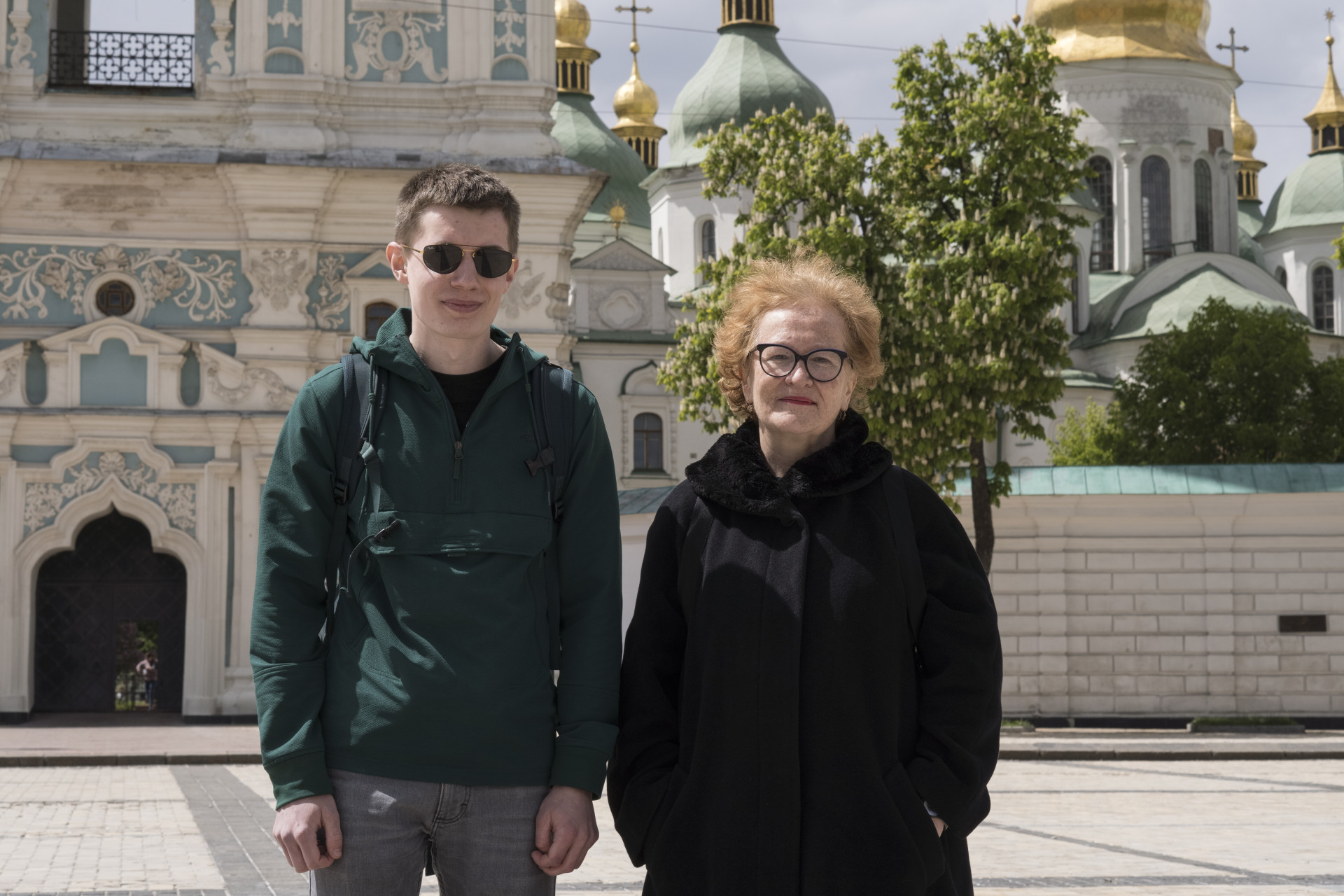
I think that people who are in prison are a great target for hatred. At the same time, I believe Russian crime is still done by the mafia, well organized. I think all existing colonies live not according to the law but the way Kum dictates. Kum is the head of the colony, who has been called so since Stalin’s times. It has its system of relations between people, which is not legalized by any rules. For example, people imprisoned for committing crimes related to sexual violence have no rights at all in the colony. At the same time, not all these people are incarcerated for the cause. I know individuals imprisoned simply because they were slandered, tortured, and so on.
Prisoners’ rights are being violated in a way that the rights of no one outside are violated, even now, that’s for sure. But any prison is a fragment of society. When it was freer in the late 80s and early 90s, it was also freer in prison. And now everything is suppressed more and more. If this happens outside [of the prison], then what to tell about inside? There they do whatever they want.
“I really want the president of my country to stand trial and not die in his bed”
Who are the current superheroes of Russia? People about whom they will make films like ‘Schindler’s List” in the future?
I can’t name these people, but I know them. I think it’s best not to name them yet. These are people who are directly risking their lives. Not like me. I risk my life, like all the inhabitants of Ukraine: to die from a Russian rocket or bullet. They risk their lives on the Russian Federation’s territory, helping Ukrainians pass through, helping Ukrainians who ended up in Russia to get medical treatment and hide. Not all profess pro-Ukrainian views, but they all suffered from the war. I know these people, but I prefer not to disclose their names.
Will you ever see a free Russia?
You know, I even see a free planet in my dreams. Well, I’m such a romantic and a dreamer.
Planet Earth?
Planet Earth. Whether I live to see it or not, I don’t know. Maybe it will never happen. I try to play sports and monitor my health to survive at least until The Hague. I really want the president of my country to stand trial and not die in his bed. Although unfortunately, I think that it will be exactly the same as it was with Stalin. He died in his bed. There was an extensive funeral with sobbing, tantrums, ritual dancing, and banging heads against the wall. Then everything will change, and it will turn out he is a villain. But I want very much to live to see it.
